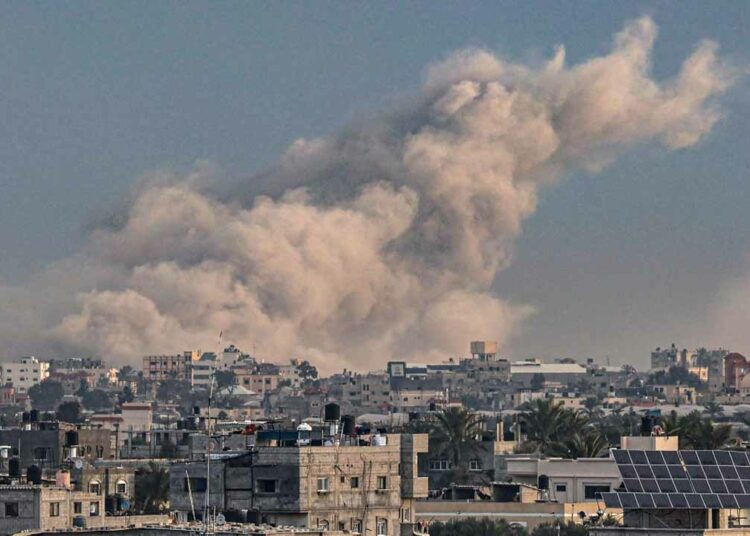With civil war in Sudan and coups spreading across the Sahel, it may seem of little relevance that the South Caucasus is on the precipice of peace. But whilst geographically remote, developments in the region that sits between Russia, Turkey, and Iran could have widespread ramifications for global trade – which could directly impact Nigeria.
The war in Ukraine hit Nigeria hard. Energy and food prices spiralled out of control. Any benefit for the country from increased crude export prices was wiped out by the jump in imported refined fuel – putting severe pressure on the then fuel subsidy. International investor risk appetite collapsed. Capital flight spread across the continent. As inflationary pressures mounted, the American Federal Reserve hitched interest rates, taking the dollar to new heights as global capital sought safe havens. Given that much of Nigeria’s debt is denominated in the greenback, repayments ballooned: according to the World Bank, as a proportion of government income, they increased to 96% in 2022 from 83% a year earlier.
Just when pressures appeared to be easing, with interest rates falling and the risk appetite for developing markets growing, war between Israel and Hamas threatens another choke point of global trade. The Houthis, in solidarity with the Palestinians, have been attacking Western commercial ships travelling through the Red Sea on their way to the Mediterranean through the Suez Canal. The waterway is critical for global trade: one-third of all container traffic passes through it. It is also an energy artery for Europe (and of heightened importance since the Ukraine war): 12% of seaborne oil and 8% of LNG also flow through it. Whilst Nigeria is still reeling from the fallout from the Russia-Ukraine war, contagion from the Israel-Hamas war threatens more of the same.
The two conflicts show the pressures that chokepoints in the global trading architecture can exert on the developing world. Alternatives are needed to prevent geopolitical instability from cascading across the globe.
The South Caucasus is one of those alternatives. Azerbaijan, with large oil and gas reserves in the Caspian Sea, already supplies energy to Europe and has agreed to double capacity in the wake of the Ukraine war, easing pressures on international markets. But there is also the potential to bring the vast energy reserves of Central Asia across the Caspian Sea and through the South Caucasus infrastructure to Europe. The region could also become vital for other trade. The only feasible overland freight lines from Asia to Europe run through here (the other ones travel through either Russia or Iran, making them a dead-end for Europe).
But its full potential as a conduit for global trade has been hindered by the conflict between Azerbaijan and Armenia over the province of Karabakh – a region internationally recognised as Azerbaijan, but which had been occupied by Armenia for the past thirty years. However, after a war in 2021, which saw Azerbaijan regain its lands, the two are on the brink of signing a peace deal.
It has taken the two countries a long time to get to this point. But an election in Azerbaijan could potentially derail talks if the electorate does not vote for another term for current President Ilham Aliyev. Yet this seems unlikely. Regaining Karabakh from Armenian occupation has been a national cause since its loss in the 1990s. Having delivered it, the president is riding a wave of popular support going into the election. But he has also put the peace deal at the centre of his campaign. The vote is essentially a referendum on it.
But for the peace agreement to go through, it is also essential that his Armenian counterpart stays in power. When Azerbaijan reversed the occupation, he became the first Armenian leader since independence to state he will recognise, as every other country in the world does, that Karabakh is Azerbaijan’s sovereign territory. However, he faces pressure from a nationalist opposition bent on toppling him and scuppering the peace deal.
This would be a disaster for Armenia. The country has been regionally isolated due to its occupation of its neighbour’s territory. Its economy has suffered as a consequence. Yet a peace deal would see borders reopen and reintegration begin.
Failure to do so would also prevent the region from reaching its full potential as a trading hub connecting the Eurasian landmass. At the moment, energy infrastructure and freight lines navigate a narrow path from Azerbaijan, around Armenia, through Georgia, passing into Turkey and then onto Europe. Peace could offer the prospect of connective infrastructure passing more logically through Armenia, reintegrating the country back into the region, whilst vastly expanding the capacity of energy, commodities, and goods that can move through the region.
The ripple effects of this development could help Nigeria better weather the effects of geopolitical turbulence. With more options for global trade, the risk of explosive and destabilising commodity hikes and inflationary spirals off the back of conflict would be mitigated. For these reasons, we should all be hoping the leaders of both Azerbaijan and Armenia stay in power to ink the peace deal.
– Garba Shehu is a journalist, former Presidential Spokesperson.





